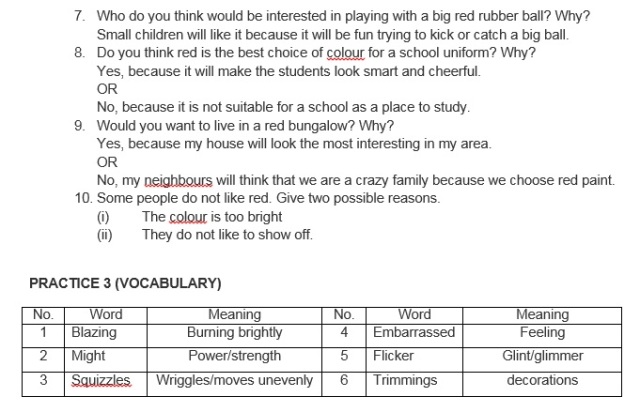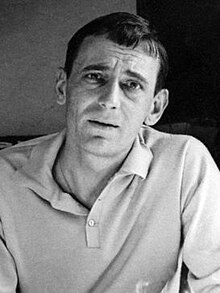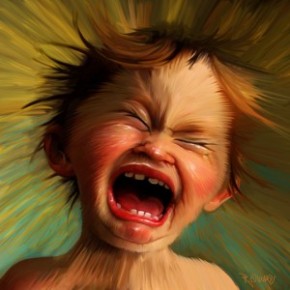Willis Edward Hall (6 April 1929 – 7 March 2005) was an English playwright and radio and television writer who drew on his working class roots in Leeds for much of his writing. His best-known work was a stage adaptation of the 1959 novel Billy Liar (1960), co-written with the book's author and Hall's lifelong friend and collaborator Keith Waterhouse.
Life and Work
Born in Hunslet, Leeds, Hall was the only son and elder child of Walter Hall, an engineer's fitter, and his wife, Gladys (née Gibbon). He attended local council schools as well as Cockburn High School After graduation, Hall worked in a variety of positions including factory worker, trawler hand, and amusement park attendant. Upon reaching the age of eligibility for National service, Hall volunteered for the regular army, where he served as a signals corporal in Malaya. During idle hours there, he wrote plays for Chinese children that were later broadcast on Radio Malaya and designed sets for Singapore Little Theatre.
Hall's military experiences later inspired his first play, The Disciplines of War,about British soldiers ambushed in the Malayan jungle, that premiered on the fringe of the Edinburgh International Festival in August 1957. After gaining interest from the Producer Lindsay Anderson, the play was renamed The Long and the Short and the Tall, and premiered at London's Royal Court Theatre in 1959. That year it won the Evening Standard's Play of the Year Award, and was later turned into a film version directed by Leslie Norman in 1961 and a BBC television series in 1979.
Following his success with Anderson at the Royal Court, Hall contacted a boyhood friend, writer Keith Waterhouse, about adapting his successful novel Billy Liar (1959). Their 1960 play of the same name starred Albert Finney when it premiered in 1960, and played for 582 performances before being taken out on a series of national tours. Following this success, in 1963 Hall's and Waterhouse's self-styled company, "Waterhall Productions", adapted the story for the big screen, where it was filmed by John Schlesinger, with Tom Courtenay in the lead role. Under Waterhall's coaxing, the piece also became the long-running Drury Lane musical, Billy (1974), starring Michael Crawford, and a television sit-com both in Britain (1973–4) and in the United States (1979).
Hall continued this successful partnership with Waterhouse and, over the next thirty years, the two men produced more than 250 scripts for theatre, film, and television.
Hall also wrote more than a dozen children's books, including a series about a family called the Hollins who meet a vegetarian vampire called Count Alucard. He also wrote a book, Henry Hollins and the Dinosaur. His membership of The Magic Circle was a source of inspiration for these books. He also wrote 40 radio and television plays, as well as contributing to many TV series, including The Return of the Antelope and Minder.
He wrote a musical about the scarecrow Worzel Gummidge, and others based on the books Treasure Island and The Wind in the Willows. He also wrote the script for the successful project, Peter Pan: A Musical Adventure (1996).
Hall was married four times. His first three marriages to Kathleen May Cortens (m. 1954), actress Jill Bennett (m. 1962), and Dorothy Kingsmill-Lunn (m. 1966), all ended in divorce. On 2 November 1973, Hall married the 28-year-old dancer and actress Valerie Shute, who survived him, along with his four sons. Following a long fight with esophageal cancer, Hall died at his home in Ghyll Mews, Ilkley in West Yorkshire on 7 March 2005.
(https://en.wikipedia.org/wiki/Willis_Hall)
My Hero by Willis Hall
My dad's as brave as a dad can be,
I rate him Number One,
He's not afraid of the dead of night,
Or anything under the sun.
He's not afraid of a late-night film,
Full of horrors on the telly,
And is he afraid of skeletons?
Not dad, not on your Nelly!
He's not afraid of meeting ghosts,
He'd even smile and greet 'em,
And things that scare most dads the most,
My dad could just defeat 'em.
He's not afraid of vampires,
Or a wolf-man come to get him,
If Frankenstein's monster knocked on our door,
He wouldn't let that upset him.
My dad's as brave as a dad can be,
And he's always ready to prove it.
So why, when a spider's in the bath,
Does Mum have to come and remove it?
Pharaphrase of the poem.
Stanza 1.
The persona is very proud of his father who he feels is as brave as any other father or even braver.In his eyes,his father is Number One as his father is fearless and not afraid of the dead of night and anything under the sun.
Stanza 2.
The persona says his father is not afraid to watch horror movies late in the night.Horror scenes of skeletons do not scare him or put him off watching them.

 Stanza 3.
Stanza 3.
The persona is positive his father is not afraid of ghosts and would even smile and acknowledge them.His father dares to fight against things that most other dads are afraid of.
Stanza 4.
The persona's father will not be intimidated by horror,figures like vampires ,wolf-man or Frankenstein's monster even if they appear at the door.
Stanza 5.
The persona says his father is as brave as a father can be an he's always keen to show it.But when his father sees a spider,he will not touch it and mother has to come to his aid.This is something the persona cannot understand about his brave father.Is he really afraid of mere spider?
 Synopsis.
Synopsis.
The persona feels his father is very brave and is not afraid of any time of the day and anything in the world.He rates his father who watches horror movies late at night is not put off by any horror scenes or fearful skeletons.If any ghost appears in front of his father,he will either greet them or fight them off.Horror figures,big or small,ugly or scary looking do not give him the creeps even if they appear at his door.However,the persona's father or his hero has a weakness-He has a fear of spider.
Themes.
1)Respecting and looking up to someone.
2)Living up to people's expectation.
3)Believe in no one's skills and strengths.
4)Everyone has flaws or weakness.
5)Accepting people for what they are.
6)Parent-child relationship.
7)Hero worship.
Moral Values.
A)Recognise and acknowledge our weakness.
B)Not be afraid to acknowledge our weakness.
C)Value family relationship.
D)Must set good examples.
E)Try to live up to young children's expectation.
F)Able to separate the reality from make-believe.
G)Willing to help those in trouble.
Language and Style
1. The language used by the poet is light, simpl and easy to understand.
2. It is attributive as the poet the persona talks about his parents.
3. Use of few negative sentences
4. He's not afraid of the dead of night,
He's not afraid of meeting ghosts,
He wouldn't let that upset him.
5. There are four lines per stanza.
Tone, Mood and Atmosphere
1. Direct and matter-of-fact
2. Innocence and purehearted
3. Serious
4. Pride
5. Rhyme and Rhythm
Stanza 1 - a, b, c, b
Stanza 2 - a, b, c, b
Stanza 3 - a, b, a, b
Stanza 4 - a, b, c, b
Stanza 5 - a, b, c, b
Literary Devices
1. Symbol
'Dead of night' - symbolize darkness and anything and everything not feared by the persona's father
'anything under the sun' - anything that can be seen during the day
2. Imagery
'a late-night film, Full of horrors' - signifies a terrifying horror movie
'vampires, or a wolf-man' - gives a clear image of horror figures
'I rate him Number One' - shows the persona's pride and hero worship towards his father
3. Repetition
'My dad's as brave as a dad can be,' - to emphasize the persona's belief that his father is a brave man.
'He's not afraid of..' - repeated in four stanzas to emphasise the persona's father is brave.
4. Assonance
'monster knocked on our door'
'He'd even smile and greet them'
5. Methaphor
The persona compares his father to a superhero who will take on ghostly or horror figures. He is a human who has supernatural courage.
6. Alliteration
And things that scare most dads the most
7. Rhetorical Questions
'And is he afraid of skeletons?'
'Does Mum have to come and remove it?'
8. Irony
The irony is that the father does not seem to be afraid of horror movies and ghoulish figures like 'vampires' and even Frankenstein's monster but he is afraid of a little spider.
Practices with Suggested Answer (SA)
1.How do you think the persona probably looks when he talks of his father?Choose two word from the list given-sullen,bored,,serious,proud.
SA: Proud and serious.
2.Why does the persona use the phrase 'dead of night' to refer to the father being considered brave?
SA: Because the father not afraid of the darkness.
3.How would a person who does not enjoy late-night horror movies react to horror scenes?
SA: Not afraid to watch horror movies.
4.Describe the father's reaction to show that he enjoys horror scenes shown over the television.
SA: The persona's father is not afraid to watch horror movies.The scenes of skeletons do not scare him or put him off watching them.
5.Name the object mentioned by the persona that most people are afraid of.
SA: The object mentioned by the persona that most people are afraid of is ghost.
6.What does the persona say his father will do?
SA: The persona says his father is not afraid of ghosts and would even smile and acknowledge him.
7.What does the persona says his father will do if he sees something which other fathers are scare of?
SA: The persona's father would even smile and acknowledge if he sees seomething are scare of.
8.If the persona's father is not afraid of gholish figures,what will he do if one of those appears at his door?
SA: The persona's father will not be intimidated if one of the appears at his door.
9.Why do you think the persona's father is always ready to prove to his son that he is brave?
SA: Brave as father can be and always keen to show it.
10.How does the persona feels about his father and his fear to spider?
SA: He is confused.
11. In Stanza 1,which expression shows the persona's pride in his father?
SA: I'll rate him Number 1.
12. What does the persona's father enjoy doing at night?
SA: The persona's father enjoy watching horror movies at night on the television.
13.What literary device is used for the line 'And is he afraid of skeletons'?
SA: Rhetorical question.
14. The persona compares his father with other fathers.What is the comparison?How does the persona feel about it?
SA: Comparison: The persona's father is not scared of the things that scare most dads. The persona is proud of his father.
15. How does the persona show confidence in his father in the event his father sees a ghost?
SA: The persona's father is not scared and would smile and greet to the ghost.
16. Explain the character trait portrayed bye the persona's father.
SA: Not scared of ghost.
17. List the ghoulish figures as mentioned by the persona.
SA: Vampire,Wolf-man and Frankenstein monster.
18. What moral value have you learned from the poem?Would you recommend the poem to a friend?Give a reason for this.
SA: Yes.Because we could get some good examples for our lives.
19. What does the expression 'dead of night' normally imply?Why do you think the persona uses this expression.
SA: The dead of night shows the spirit of the father towards the darkness and his braveness.
20. What does the word 'skeletons' bring to mind?Why does the persona mention this?
SA: The skeletons is a scary figures who only has bones and no flesh.Because the skeletons has a scared-looking.
21. According to the persona,what would his father do if he meets someone or something that challenges his pride or abilities.
SA: The persona's father is doing his best to challenged it to uphold his reputation and pride.
22. Parents should set good examples for their children.Do you agree with this?Do you think the persona's father sets good examples of behaviour for the persona?If so,how does he do this?Give one examples.
SA: Parents are the leader in the family.He make everything for the happiness.
23. In Stanza 5,what does the line 'And he's always ready to prove it' imply about the parent-child relationship?
SA: Father knows now highly the child think of him so he will do anything to leave up to that standard.
24.What are the 'things' that the persona feels 'Scare most dads the most' but not his dad?
SA: The 'thing' is ghost.
25: What does 'hero worship' means?How is this portrayed in the poem?
SA; The person you admire for the braveness of the father.
26: The persona's father or hero has a weakness.What is the weakness?How and why do you think the persona feels?Why should he feel this way?
SA: i)Weakness:Scared of spiders.
ii)Feeling:Weird because his father is not afraid of ghosts figures but scared of spiders.







.JPG)




